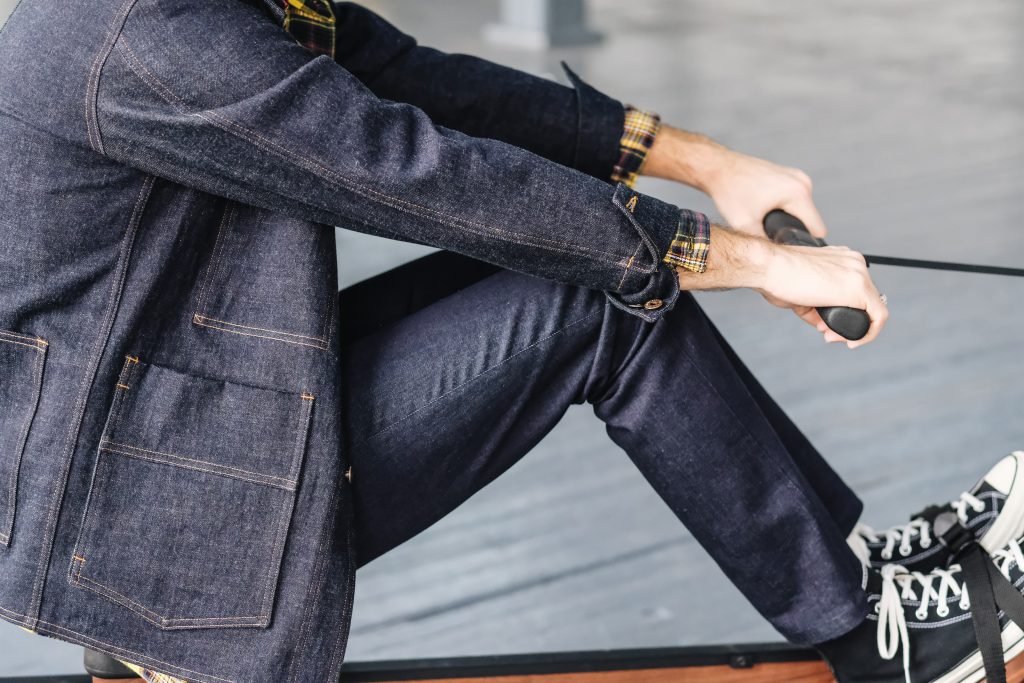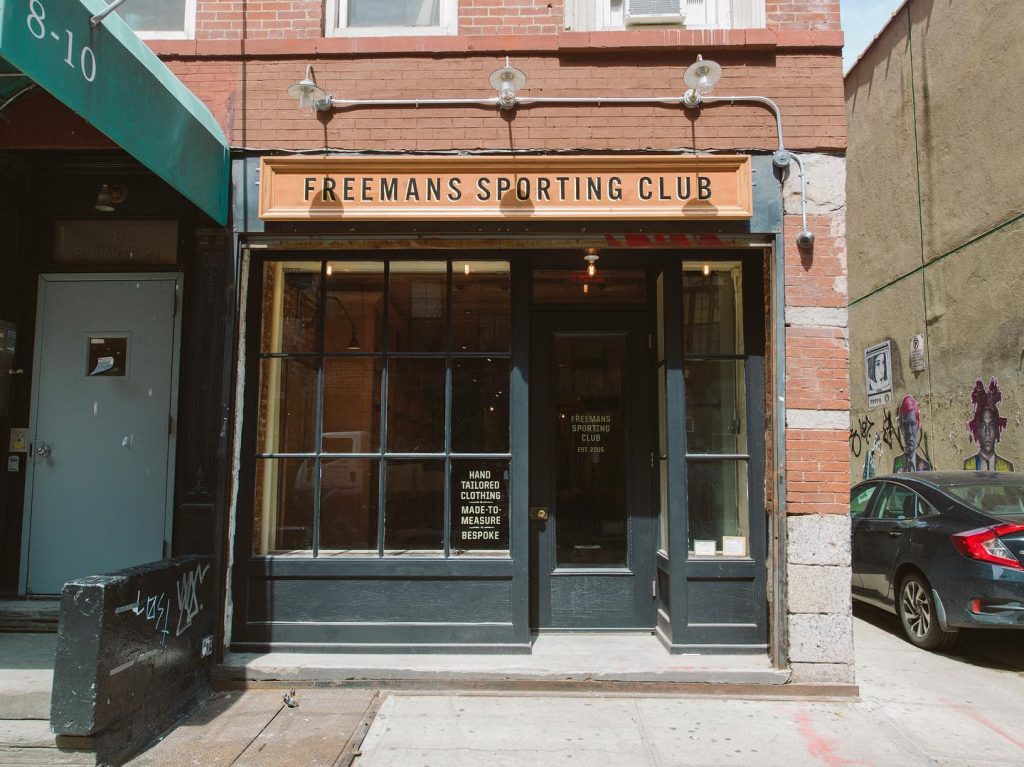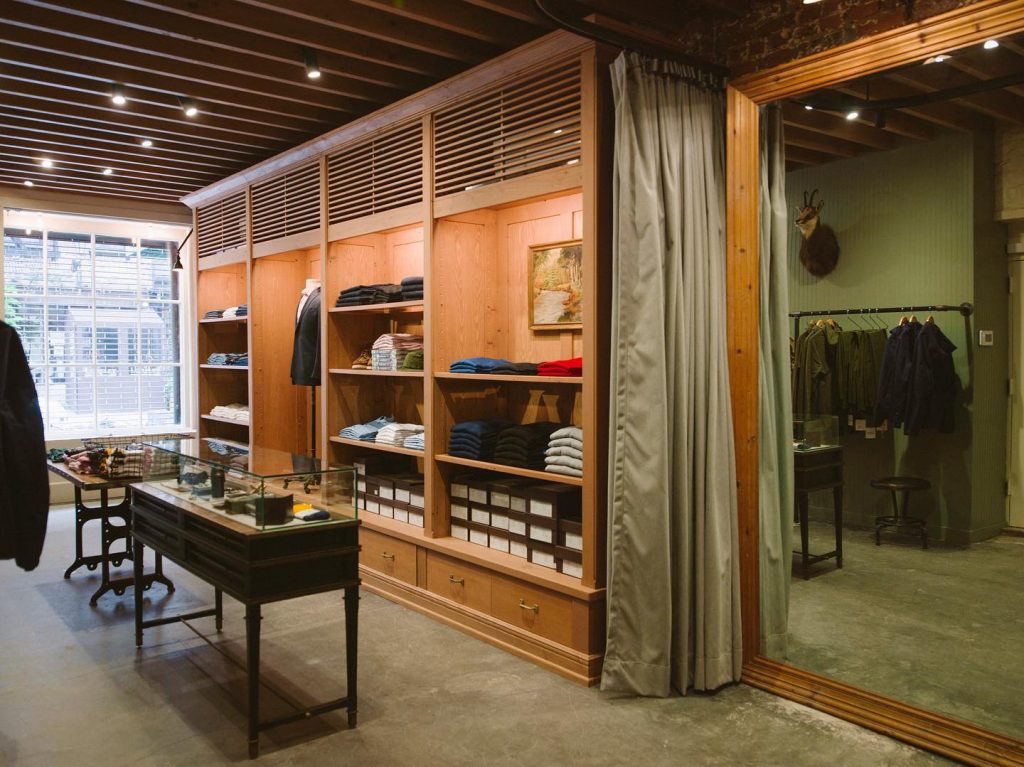Freemans Sporting Club Cherishes Its Status as a Neighborhood Store
Inside the soul of the brand with its designer, Nikko Lencek-Inagaki

Nikko Lencek-Inagaki’s affection for the NYC-based Freemans Sporting Club predates assuming the role of Designer there. “One of my favorite things about this store, about this brand, when I first started was that it really fleshed out a lifestyle, but in kind of an unusual way. It wasn’t necessarily candles and dress shoes,” he explains. “It was these sort of strange objects—these enormous camping thermoses and things like that—that gave this space our unique vibe. It was the vintage books. It was all of that. And it would be cycled through fairly quickly. It always gave someone a reason to keep coming back and to spend time and to hang out and to explore and find things that weren’t necessarily apparel.”
Grown out of the nearby restaurant Freemans (which claims the same name and falls under the same ownership), Freemans Sporting Club began producing clothing in 2005. First they made suits, then more and more until they ended up with their current selection: made-to-order and ready-to-wear suits, outwear, pants, footwear, shirts and watches. They assumed their current location (at Rivington Street and Freemans Alley) in 2006. The third endeavor was complete in 2013, when the Freemans Barbershop opened next door.

“I love that shopping experience,” Lencek-Inagaki continues. “I think that we should have a cafe and a bar—that we should have a coffee or that the first thing that we should offer customer when they walk through the door is the same thing that you offer a guest. I think that that is what is sort of unique about a space and a brand like this: that it’s always going to be a neighborhood store. And you are always welcome to come hang out and hopefully spend some time rummaging around a little bit until you find something that you fall in love with.”

Lencek-Inagaki’s sentiment remains true even applied to the entirety of Freemans Alley. Whether you visit the barber, stop in for a meal at Freemans, or purchase apparel from the Rivington-facing store on your way out, there’s something for everyone.

“And I think that [founder] Taavo‘s genius is that he does it very naturally for all these different brands and different businesses—with food and beverage, with grooming, and then also apparel,” Lencek-Inagaki says. “And I would like to keep that alive and really push that. It’s almost like the tiny boutique version of a department store, except that you don’t get the same soul-crushing sense of fatigue after 10 minutes.”

Inevitably, as operating brick-and-mortar retail spaces grows ever more difficult, understanding how to manage growth is vital to both survival and to maintaining the integrity of the brand. “There is an intention for growth. But it’s an interesting and strange business to try and scale globally,” Lencek-Inagaki explains. “It’s very easy in one way to scale something up very quickly, and a lot and other companies have done that. They’ve undergone very classic examples of growth, and at some point, sooner or later, it almost invariably alienates their original customer because the soul of things is gone. It’s too cookie-cutter—and that’s not even the right way to put it. It’s like you put the same merchandise in the same branded space, and then just plopped it down wholesale in 24 locations around the globe.”

Instead, Lencek-Inagaki and his team searches far and wide (online and offline) for rare, one-off and odd objects they can offer to their most loyal customers and for inspiration too. Lencek-Inagaki says, “It’s about trying to be the customer for the thing at the same time. If I want it, even if I didn’t realize it, I want to put that in front of other people so that they can fall in love with it, too.”

In its heart, Freemans Sporting Club will always service locals first and foremost. Even with its online offering, the stock there feels like a representation of products they’ve sought out for their neighbors. “The life of this brand is that it is a small neighborhood store, and it is accessible and unpretentious,” Lencek-Inagaki says. “And people do want to come and hang out, as we know our customers’ names and they know ours and we text them photos of things that they might like. And, what is here one week may not be here next week, and there will be new and surprising things always. I think that is what maintains the soul of this place.”
Images courtesy of Freemans Sporting Club












